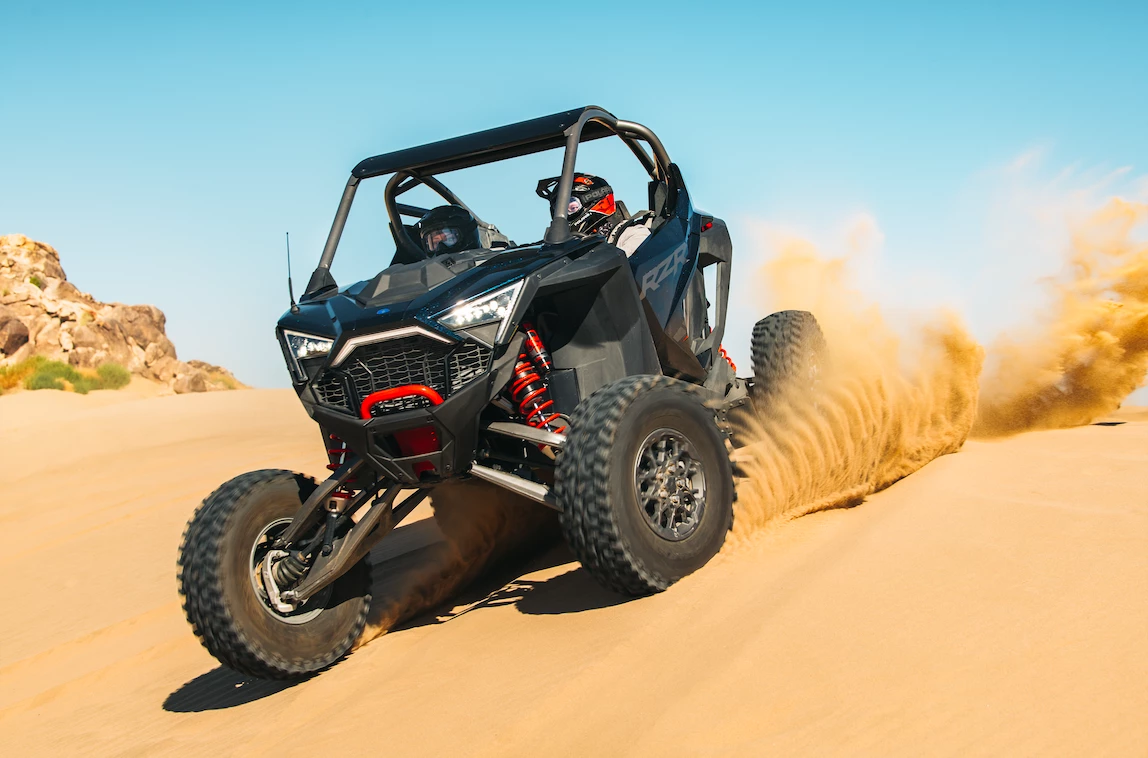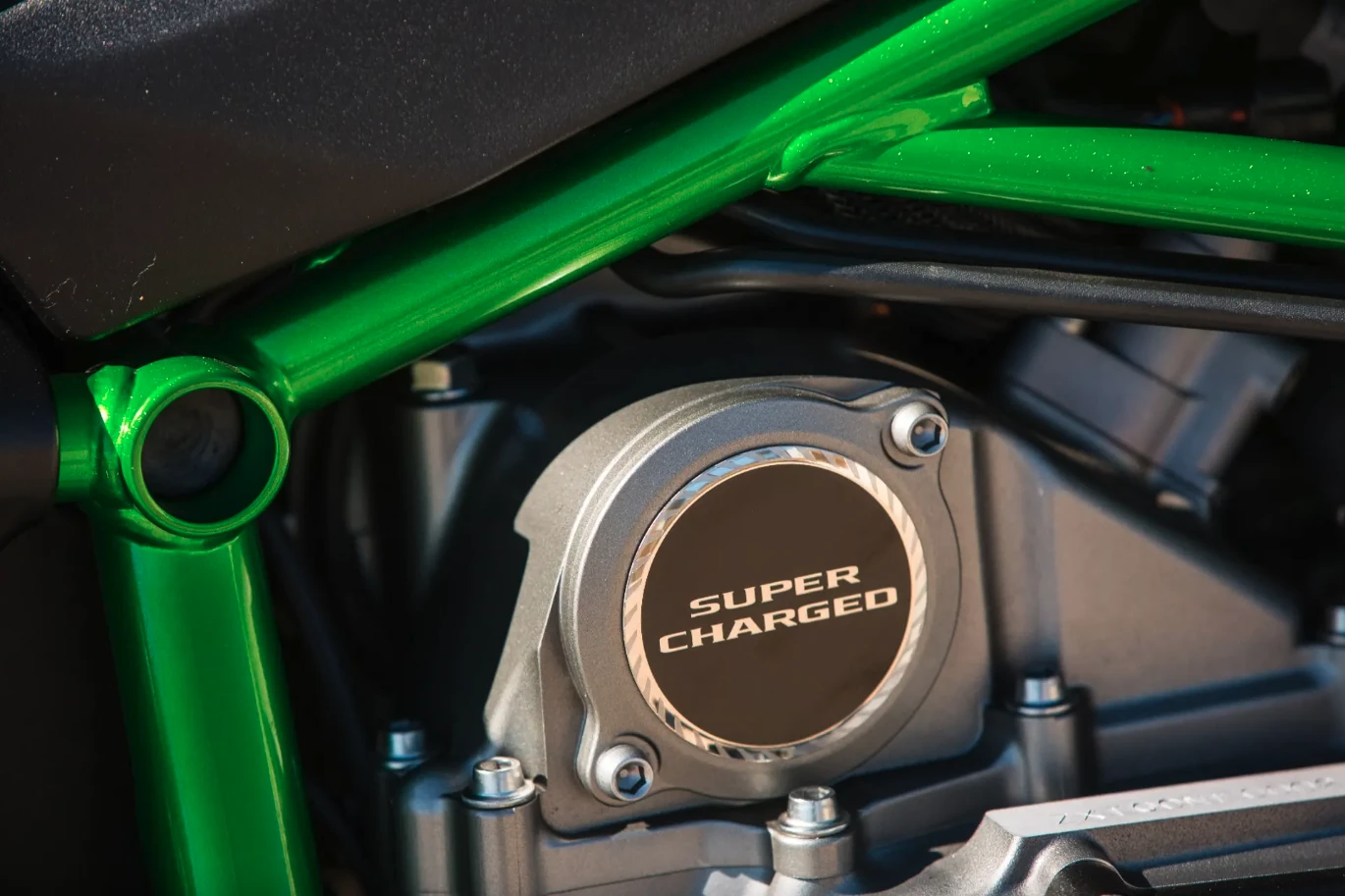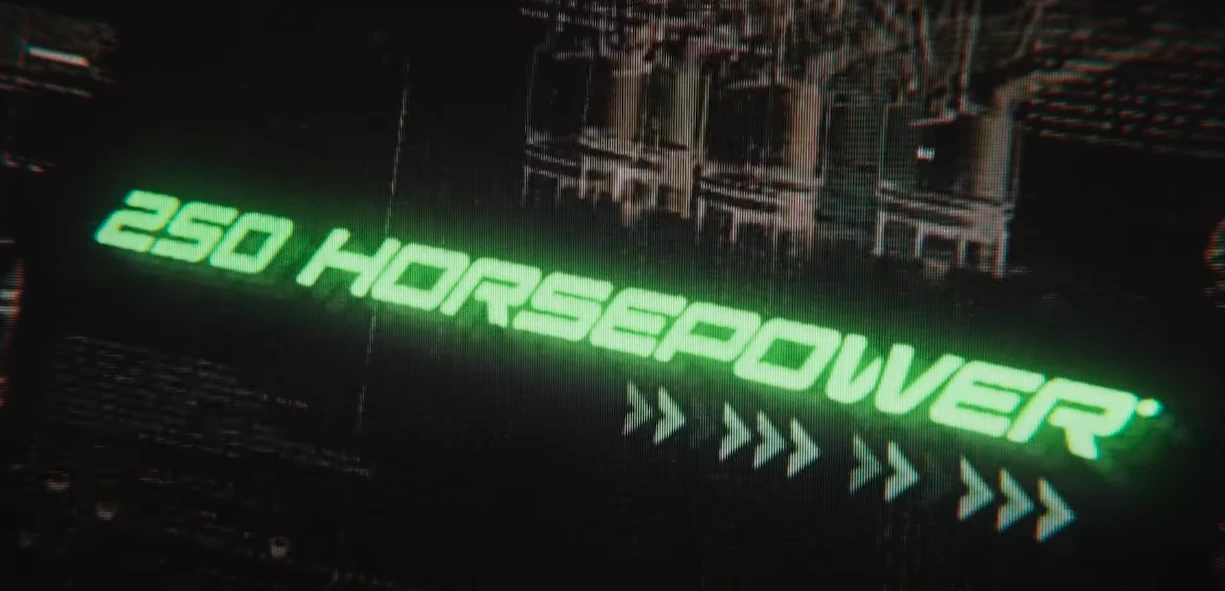Get ready to bend knee to a new king: the all-new Project H2 from Kawasaki, soon to debut as the world's most powerful side-by-side (SxS). After years of letting Polaris and Can-Am wrestle each other off the throne, Kawasaki is punching its way into the high-powered UTV battle with a beastly new supercharged machine. It'll be something of a four-wheeled Ninja H2 meant to hard-right off-pavement onto dirt, rock and dust, with at least one horrified passenger on board.
For years, we've been watching intently as Polaris and Can-Am consistently leapfrog their way to the title of "World's Most Powerful SxS." In fact, they top each other so often, that title should come with a mandatory asterisk reading "For the moment."
But Kawasaki also has a long, illustrious history in the greater UTV market, being one of the originators of the category after the introduction of the work-focused Mule 1000 way back in 1988. And it didn't miss out on the initial breakaway into recreational side-by-sides in the late 2000s, giving fun-loving off-roaders a variety of options with a Teryx lineup of four-wheelers built to split the difference between work and play.
However, Kawasaki has kept out of the all-out top-end power/performance wars, letting it play out as a two-way dogfight between Polaris and Can-Am. But a teaser it released this month shows it's preparing to enter the fray.
Polaris delivered the first blow in this particular ongoing battle when it split the purely recreational sport side-by-side segment off from the traditional UTV workhorse market with the introduction of the 2008 Ranger RZR 800. The concept of a recreational UTV was so new at the time, the RZR was launched as a trim of the more traditional, work-focused Ranger.
Tame by today's standards, that initial RZR 800 came powered by a 760cc four-stroke twin-cylinder engine developing a modest 52 hp. It distinguished itself from the purposeful, plodding workhorse UTVs of the day with a low, performance-oriented body boasting a slim, trail-friendly 50-in (127-cm) width, a pair of bucket seats, and a 55-mph (89-km/h) top speed. It was a product that birthed a fiery passion, a new way of truly experiencing trails, dunes, and off-road expanses of all sizes and styles.

Polaris did gain some early competition as other UTV builders warmed to the emerging new sport market, but it was the 2012 reveal of the Can-Am Maverick that really gave it something to think about. Beyond merely throwing its hat into the high-powered sport SxS ring, Can-Am shot past Polaris to become the first to hit triple digits, with the 101-hp Rotax V-twin engine it stuck amidships the 2013 Maverick 1000R.
Polaris didn't let that stand for long. Less than a year later, it snatched up the gauntlet and introduced its own triple-digit model: the 107-hp 2014 RZR XP 1000. Back on top.
Then a year later, Can-Am split the court in two with a bright ace it called the Maverick X ds Turbo, a 121-hp variant debuted as the first turbo on the market.
The battle has raged on ever since, and while Kawasaki inched closer to entry with the 2019 debut of the Teryx KRX 1000, its first side-x-side to shed all pretenses of work and utility in favor of unfettered 1,000cc exhilaration, it never went all in on the power/speed wars. By the time that 2020 KRX 1000 debuted with 112 hp, it was well short of the heights Polaris and Can-Am had scaled.

Two years later, in fact, Polaris doubled that KRX 1000 output with the 225-hp RZR Pro R, which remains its most powerful to date, a sand-spewing beast our own Aaron Turpen throttled up to 80 mph (129 km/h) before being overcome with the feeling that "my will to live was stronger than my need to go even faster." Wise words, though he reckoned he was mere seconds away from tickling the underbelly of 100 mph (161 km/h) when instincts to dial back kicked in strong.
And that Pro R isn't currently even the most powerful or fastest on paper. Can-Am brought the RZR kingdom toppling down again in 2023 with its 100-mph 240-hp Maverick R, the reigning power king of the modern side-by-side scene.
It's in that thick, steamy jungle of 200+ hp figures and triple-digit speed potential that Kawasaki officially sends its own troops marching into battle. A tall order, but they're neither blind nor underprepared, bringing exactly the right secret weapon to level the field.
As biking fans already know, "H2" in Kawasaki parlance does not refer to an alternative combustion fuel (that's Yamaha, Toyota and Honda's gig) but serves as a designation indicating the presence of the unrelenting supercharged 998cc four-stroke inline-four time bomb Kawasaki first strapped to the ground-smashing 300-hp Ninja H2R, one of the all-out fastest, most insane two-wheelers the world has seen, then or now. The 200-hp street-legal Ninja H2 that followed is no slug, either, and New Atlas chief and all-around moto madman Loz Blain has labeled it "the paragon of utter excess on the road."

Now that same boosted power plant finds its way into a side-x-side, and as Kawasaki previews in a teaser video it dropped this month, it'll be tuned to 250 hp with a redline somewhere in the neighborhood of 10,000 rpm. Same engine, same chaotic disruption, new market.
That figure does come with a footnote, as Kawasaki notes it was measured using the ISO 4106 standard instead of SAE standards and may be inflated compared to using the latter. Will it still edge out the Can-Am Maverick R, or is Kawasaki more concerned with the overall package and not hyper-focused on but one number? Either way, it should prove a serious force to be reckoned with.
We'll have to wait to find out more because that's all the company is saying about this "top-secret development project" for now. But if it wants any chance of being king of the pack, it had better reveal it soon. History tells us that the next great thing from Polaris and/or Can-Am won't be far behind.
Watch the teaser for yourself below. It won't take long.
Source: Kawasaki




